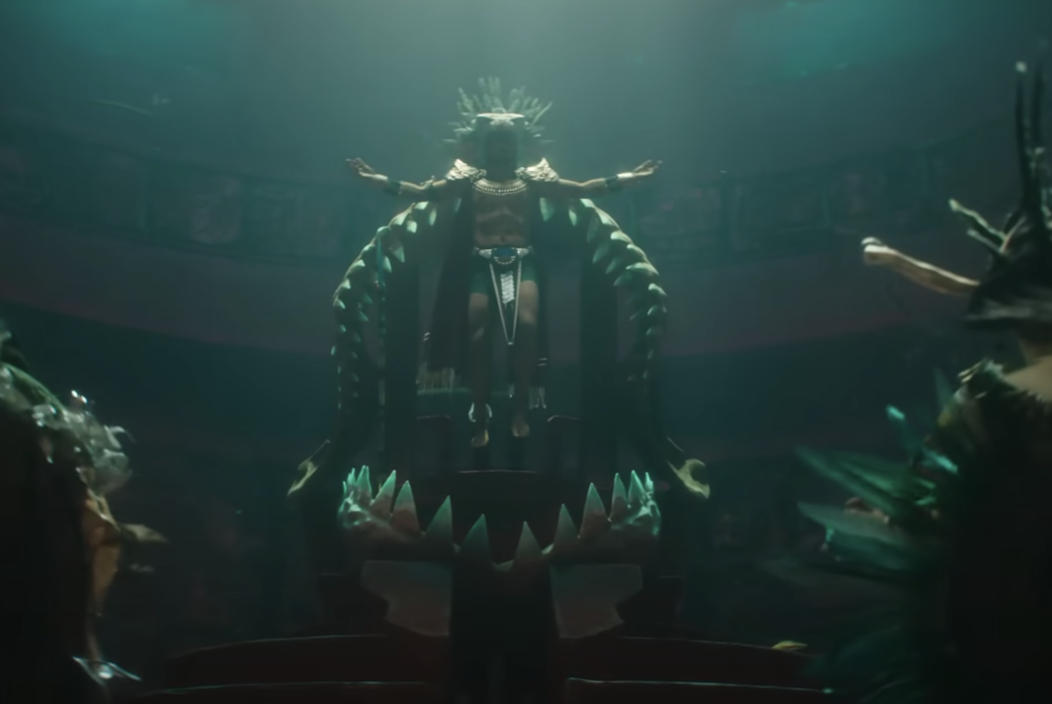🚨Warning: This article includes major spoilers for Black Panther: Wakanda Forever.🚨
Black Panther: Wakanda Forever is not your typical Marvel film. In fact, it's unlike any superhero film ever made. Sure, there are the CGI battle scenes, universe-building cameos, and the very distinct MCU humor beats. But it deals with a real-life tragedy within the film, which gives the movie a meta feeling that borders on fourth-wall breaking.
Here is my in-depth review of Black Panther: Wakanda Forever!
The passing of Chadwick Boseman is a shared grief that the audience, the actors, and the MCU characters themselves mourn together. I don't think I've ever experienced a superhero film where actors, audiences, and characters were all interconnected through the shared grief of loss in this way.
Ryan Coogler was very aware of this. And although there were cries and petitions to recast T'Challa, the world needed this. We all needed an opportunity to grieve and celebrate both Boseman and T'Challa. Coogler provided this unique experience, and the stellar cast drives it home.
Side note: Can we get Angela Bassett that damn Oscar already? Ya'll tripping. This whole intro was low-key my elevator pitch for her Oscar award. Moving the hell on...
Letitia Wright puts the weight of this grief on her shoulders and delivers in a way I wasn't expecting. It was beautiful to see her character, Shuri, go through a similar arc of grief that T'Challa went through in Captain America: Civil War.

Can we all just marvel at the all-white funeral? I don't think anyone in the theater moved an inch during those scenes.
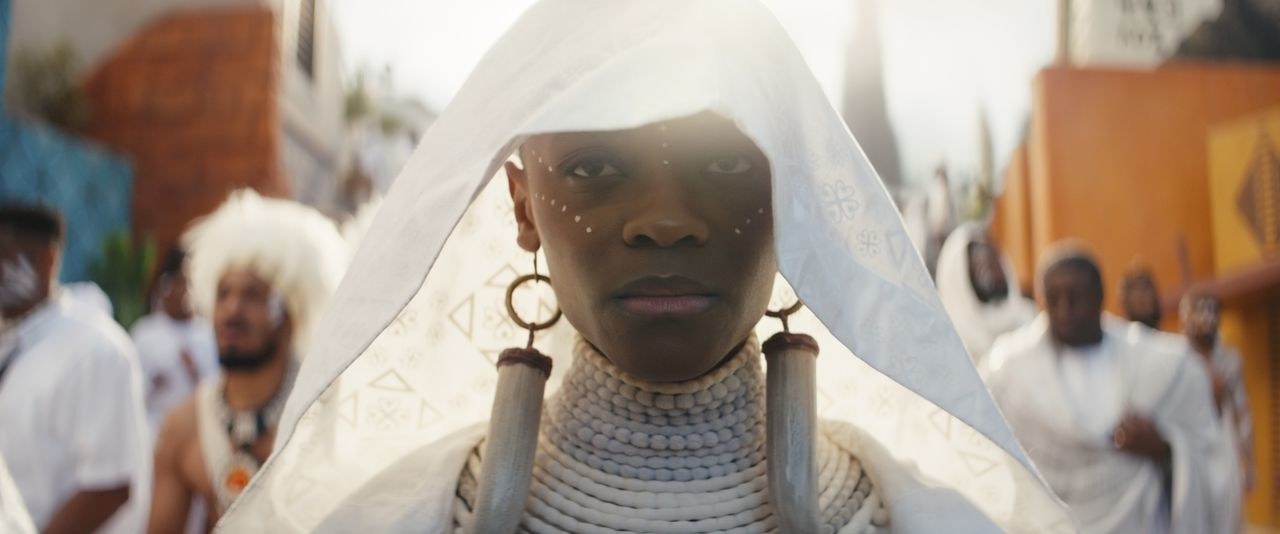
Black women take the center stage in this film, another perfect example of Coogler using real life to reflect his art. Too often, it is Black women who are left to pick up the pieces when our sons, brothers, and fathers die. Rebuilding what was broken on more than just a physical level, but a spiritual and mental level, is left in the hands of Queen Ramonda.
But grief isn't solely owned by Wakanda. In the depths of the ocean, we meet the Talokan people and their leader, Kukulkan, aka Namor.
Namor and his people were forced underwater during the Spanish Inquisition, which ravaged and enslaved entire civilizations. Much like Wakanda, the Talokan people have found a reliance on Vibranium. In fact, by ingesting their own version of the heart-shaped herb, the Talokan people developed their ability to breathe underwater.
I'm not entirely sure how I felt about this twist.
Namor's grief stems from his mother's dream of returning to her homeland. After the mighty mutant discovers slavers in the land his mother called home, he and the Talokan people murder them. His grief for his motherland then turns into vengeance for the surface world.
Namor's overall arc has Killmonger vibes, which I'm not mad it. It's a conversation that needs to be continued and elaborated on.
Now here's a change from the comics I really loved!
Also, tell me that first scene when you see the Talokan using some type of singing-hypnosis to make people drown themselves wasn't one of the most badass things in an MCU film!
As the film progresses, we are introduced to RiRi Williams. In the comics, Williams is one of the smartest people on the planet. We're talking Tony Stark, Reed Richards smart.
RiRi is a scientist who develops a machine that can locate Vibranium, which leads some greedy colonizers to Talokan, a city made from the rare metal. And herein lies the main conflict of the film. Namor seeks to kill RiRi, as she's the only person who has been able to create this device. Wakanda steps in to save her, and now we have two nations at battle.
This battle between Wakanda and Talokan is fought over resources, yet another instance of Coogler using real life to influence his direction. While the colonizers want Vibranuim for themselves, both Wakanda and Talokan seek to stop the exploitation of their resources.
It's wrapped around this battle for resources where Coogler and Feige give us our MCU universe-building. Julia Louis-Dreyfus's Allegra de Fontaine serves as our big connection, and we finally have her motive.
Speaking of bringing back Black Panther... I'm happy the film stuck to the comic roots and made Shuri Wakanda's new protector.
Shuri's grief at first turns into depression. We see her dealing with her brother's death by digging into her work and avoiding people. It's Okoye who suggests that Shuri should be exposed to the world in her time of grief, which leads to the princess being taken by Namor to his underwater kingdom. Okoye was right — Shuri definitely needed to step out into the world. However, she loses her position as Dora Milaje for losing Shuri. This scene had me shook ya'll!
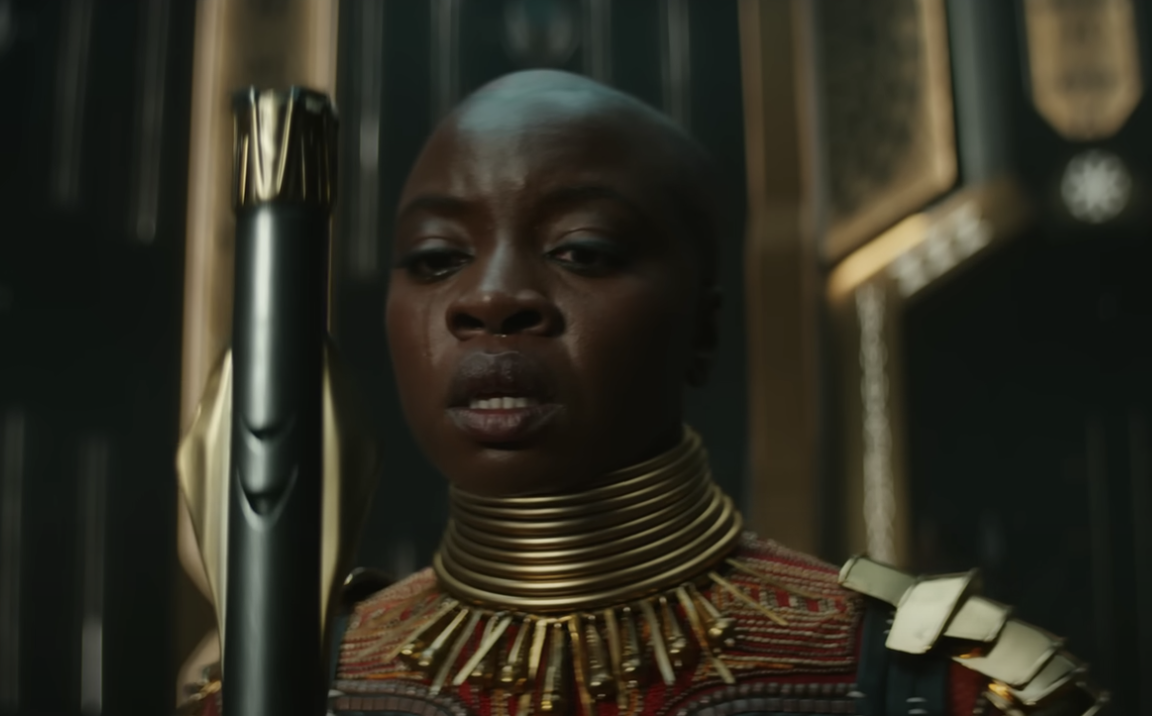
Shuri is rescued by Nakia, in a plot thread that felt more like a spy film. I loved the Winter Solider vibes Nakia's storyline gave me here, as she is tasked with infiltrating an underwater community and saving Shuri.
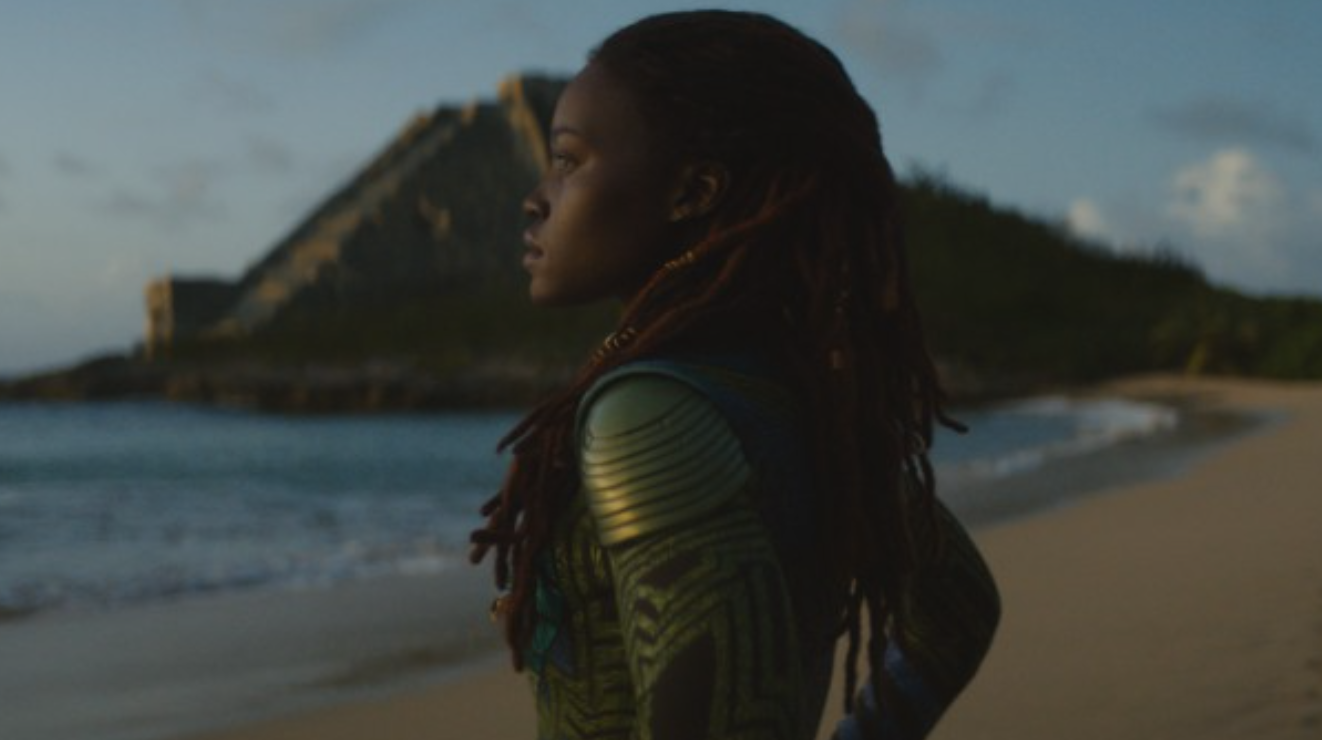
Once again, grief becomes vengeance. Namor attacks Wakanda, and in the ensuing flood, Queen Ramonda is killed. I was NOT expecting Coogler to kill off the Queen. How much can one family go through?!
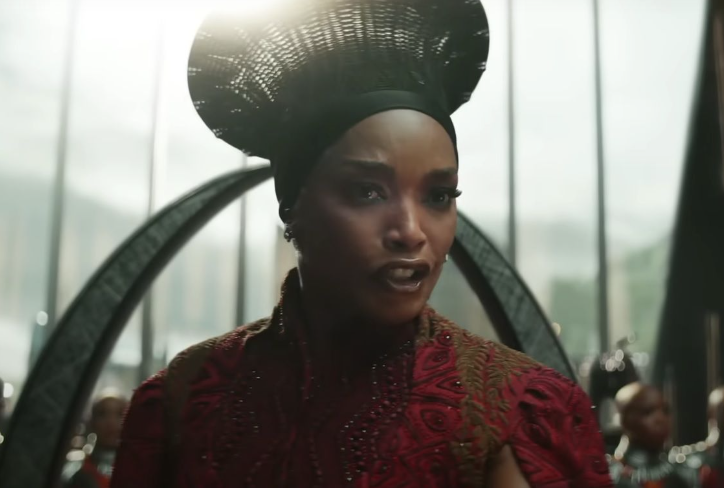
Cue the Killmonger cameo. Instead of seeing her mother or her brother, Shuri sees Killmonger when she visits the land of her ancestors during her vision. Shuri's grief is now rage, and her spirit is on fire. Killmonger explains that it was Shuri's rage and quest for power that brought his spirit to her.
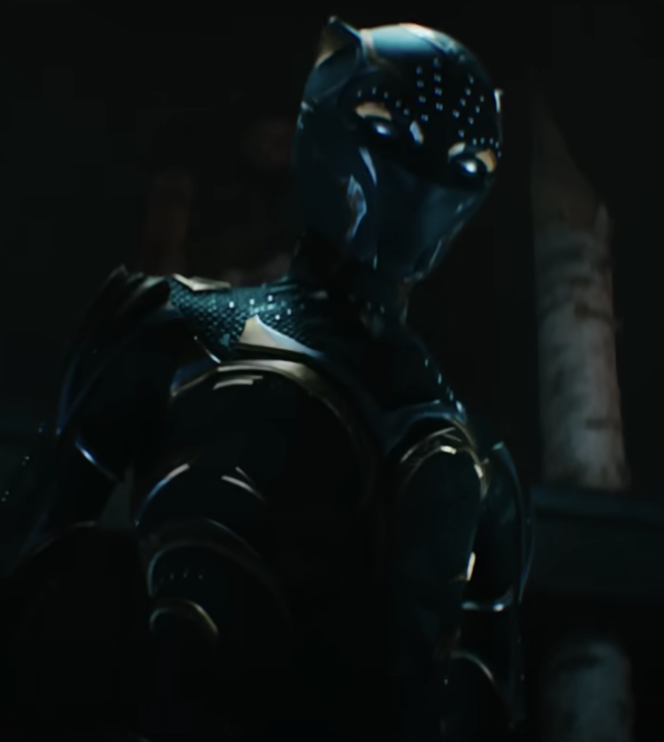
This is such a big metaphor for the Black and Brown communities. How do you process your grief? Do we continue a cycle of vengeance? Do we become beings of rage? It feels like Coogler took inspiration from films like Menace II Society and Boyz n the Hood here.
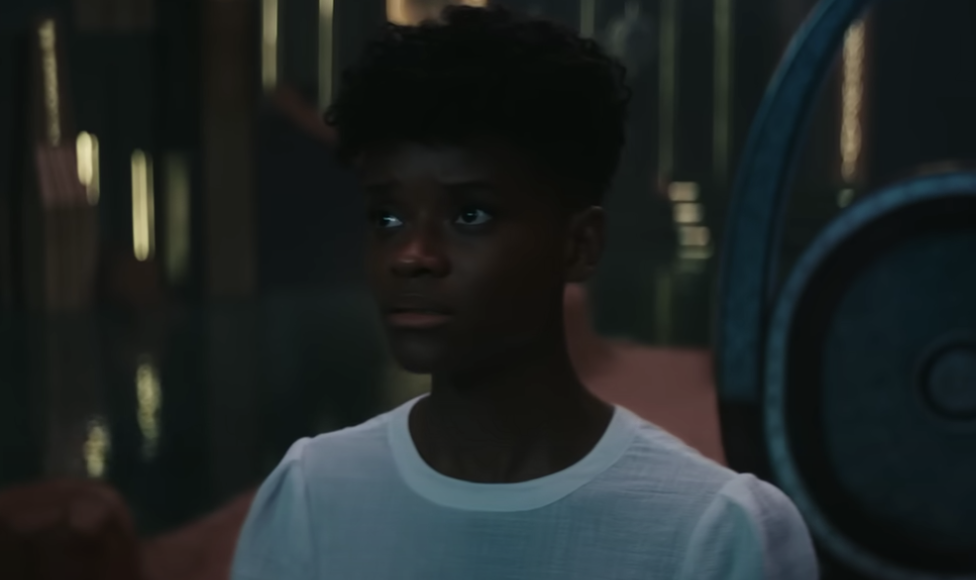
By the time we get to the film's climactic finale, which is fun to behold, Shuri overcomes her rage. She allows Namor to live and offers him a truce. It's an end to the cycle of killing. And let me tell you, I WANTED her to kill him. Although I know how important Namor is to Marvel lore, I was just mad. How can you let the man who killed Angela Bassett — I mean, Queen Ramonda — live?
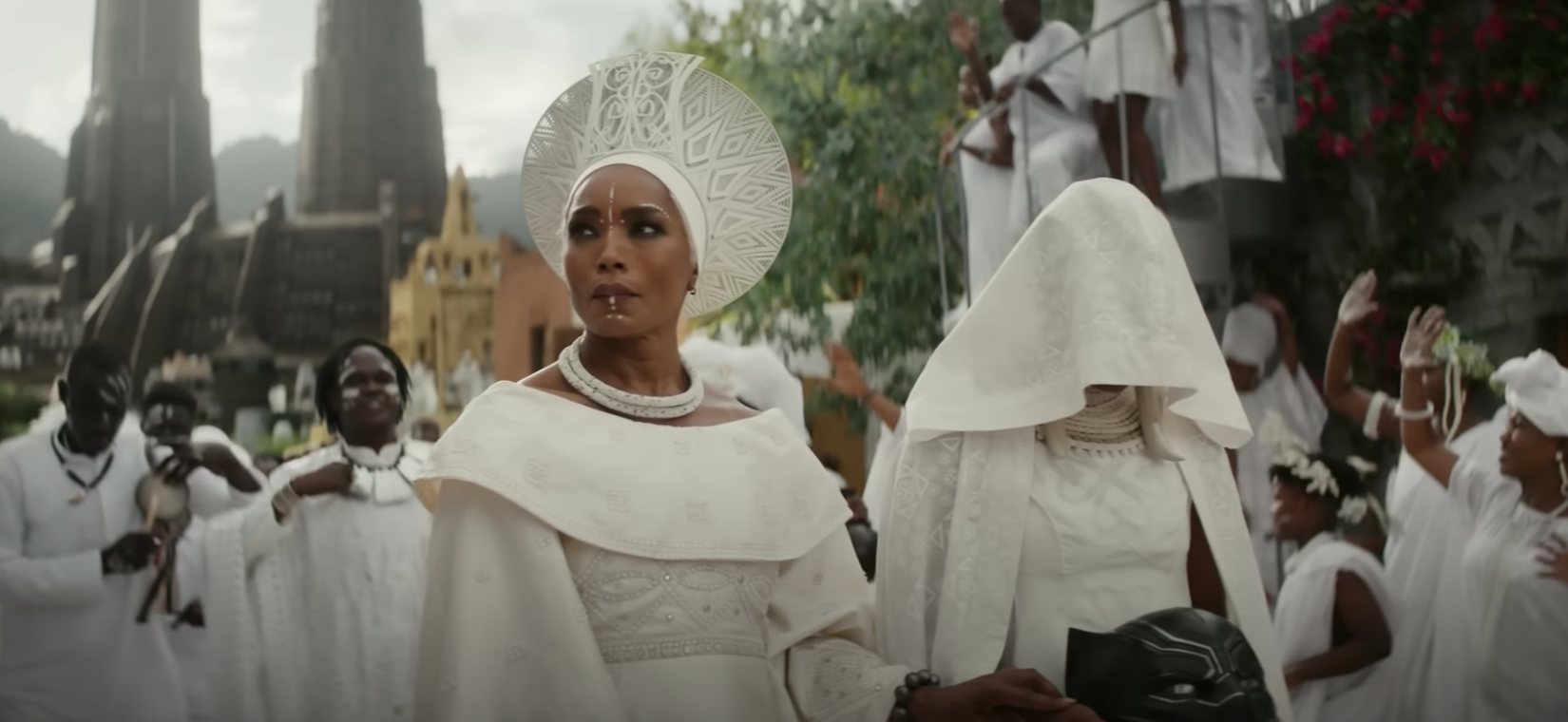
I want to touch on the final battle between Shuri and Namor as well. I've seen some chatter about Shuri not having the training nor the battle experience to stand against Namor, but the film takes care of that perfectly. It's very obvious Shuri is outmatched throughout their entire fight. She gets her ass kicked for most of it (and nearly dies). She's able to use her agile movements and the Black Panther suit's kinetic release to hold her ground. Of course, having super strength also helps. However, in the end, it's her intelligence that wins the day. Discovering Namor's weakness is what saves her. He is the better warrior, but Shuri is the smarter fighter.
